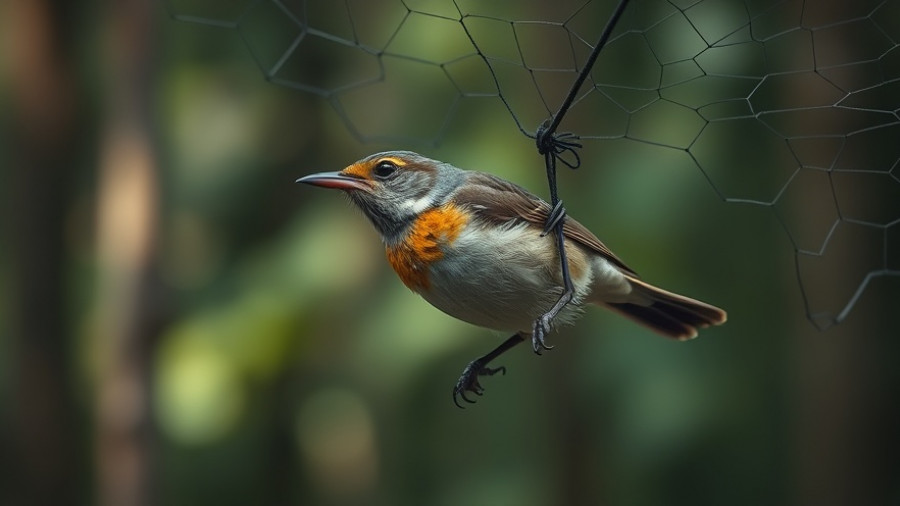
Cyprus: A Silent Symphony Turned Into a Tragedy
Before dawn breaks over Cyprus, a haunting silence pervades the landscape, disrupted only by mechanical bird calls echoing from hidden speakers. This disturbing soundtrack is not a celebration of nature's resilience; it’s a call to arms for poachers eager to hunt down songbirds – creatures caught in a cruel web of illegal hunting practices and outdated cultural traditions. Each year, the island is responsible for the brutal slaughter of approximately 500,000 songbirds, including the beloved bee-eater and blackcap, drawn down from the sky with deceitful tricks and lethal traps.
The Dark Underbelly of Ambelopoulia
The devastating practice of trapping songbirds is primarily linked to culinary traditions surrounding a dish known as ambelopoulia. Though illegal since 1974, many restaurants and homes covertly serve this dish made from grilled or pickled songbirds, creating a lucrative underground market. Naturalists like Chris Packham have shone light on this horrifying reality, where the ravaging of songbird populations clashes with wildlife conservation efforts. “If you’re coming to Cyprus,” Packham states, “these are the two most grisly souvenirs you could possibly end up with.”
The Fight Against Organized Crime
Efforts to combat this organized crime have faced not only societal indifference but also threats to activists standing against poachers. Andrea Rutigliano from the Committee Against Bird Slaughter (CABS) bravely highlights the risks faced by activists trying to save these marginalized birds. As the demand for ambelopoulia fuels poaching, police and conservationists strive to push back against this grim trade. However, the startling reality is that the killing methods utilized are exhaustive; from glue-covered branches to fine-mesh nets, the strategies are tailored for efficiency, often successively detracting from bird population stability.
Political Will or Apathy?
The issue runs deeper than mere advocacy; it begs the question of political will. Despite existing laws aimed at protecting wildlife, lack of enforcement has rendered these measures nearly impotent. As reported by BirdLife Cyprus, police resources have dwindled, allowing criminal networks to thrive undeterred. “Millions of people around Europe love birds... we need to ensure they know that this insane slaughter is taking place,” Packham insists. The gravity of this situation calls for international awareness and political engagement – a reminder that the connection between local practices and global conservation is unequivocally intertwined.
Community Awakening: A Journey Toward Conservation
Grassroots initiatives are emerging, aiming to shift cultural perceptions surrounding ambelopoulia and wildlife conservation. BirdLife Cyprus is undertaking a monumental challenge; through awareness campaigns and educational programs, there is hope that future generations will grow up appreciating rather than consuming these avian spirits. “If we don’t turn this from socially acceptable to socially unacceptable,” warns conservationist Tassos Shialis, “no matter how much enforcement we do, there will always be a criminal who wants to make a profit out of this.”
As the community wrestles with its identity and heritage amidst a dwindling dawn chorus, the urgency to evolve becomes clear. Local environmental advocates, supported by changing attitudes in wildlife appreciation, could pave the way for the rebirth of Cyprus’s rich biodiversity.
When you think of the beautiful landscapes bathed in birdsong - remember, every act toward conservation counts. We must align our hearts with nature's rhythm and ensure that Cyprus isn’t just a haven for ambelopoulia but for thriving wildlife.
 Add Row
Add Row  Add
Add 




Write A Comment